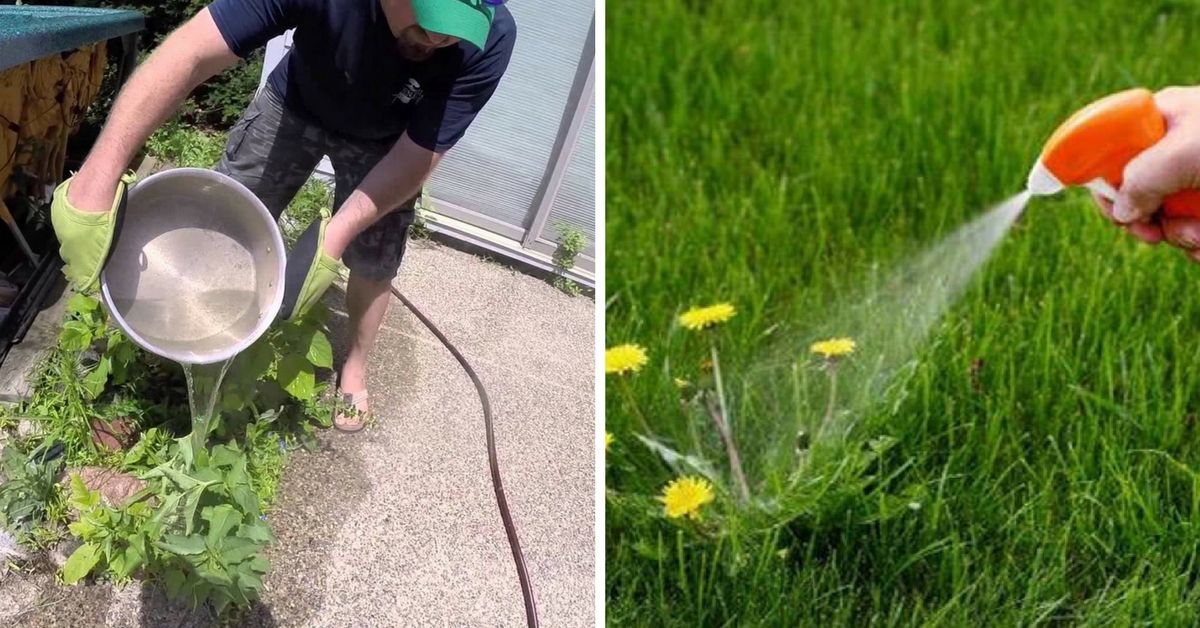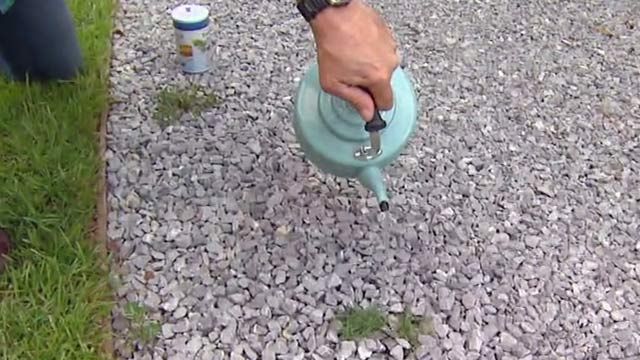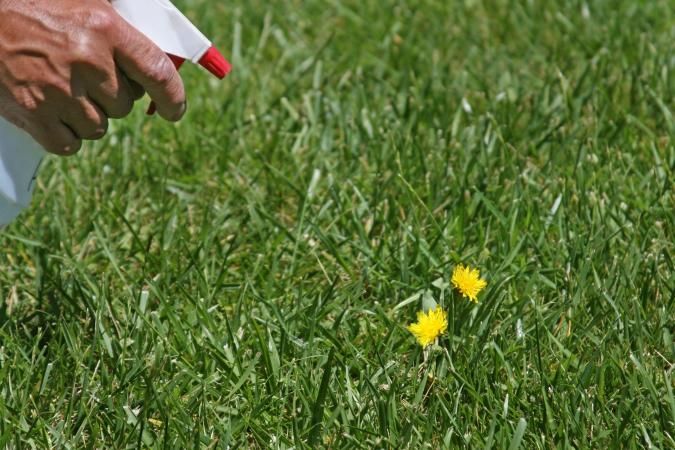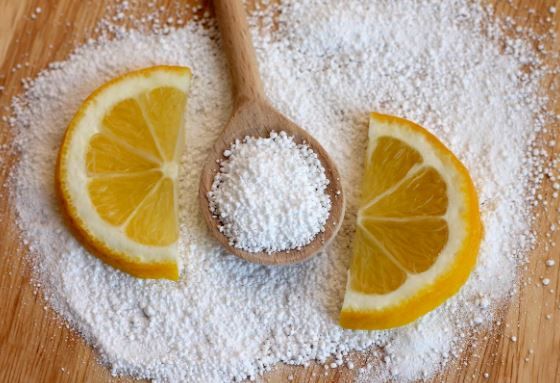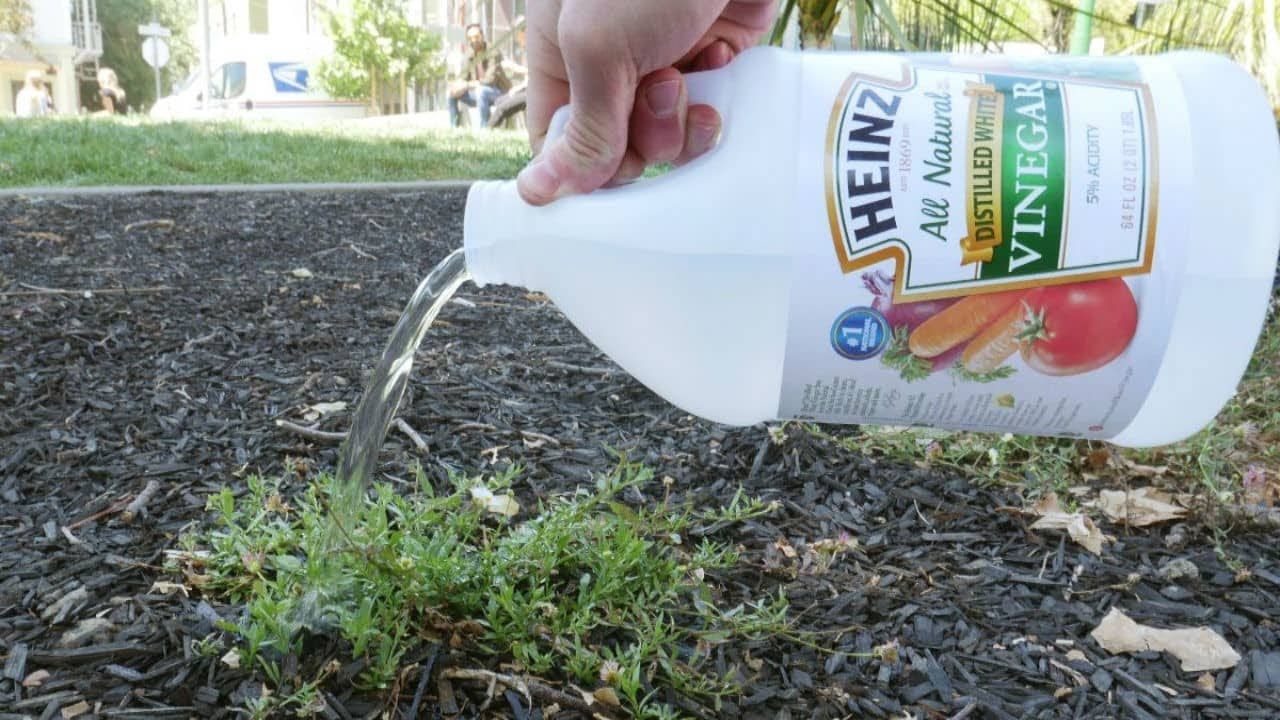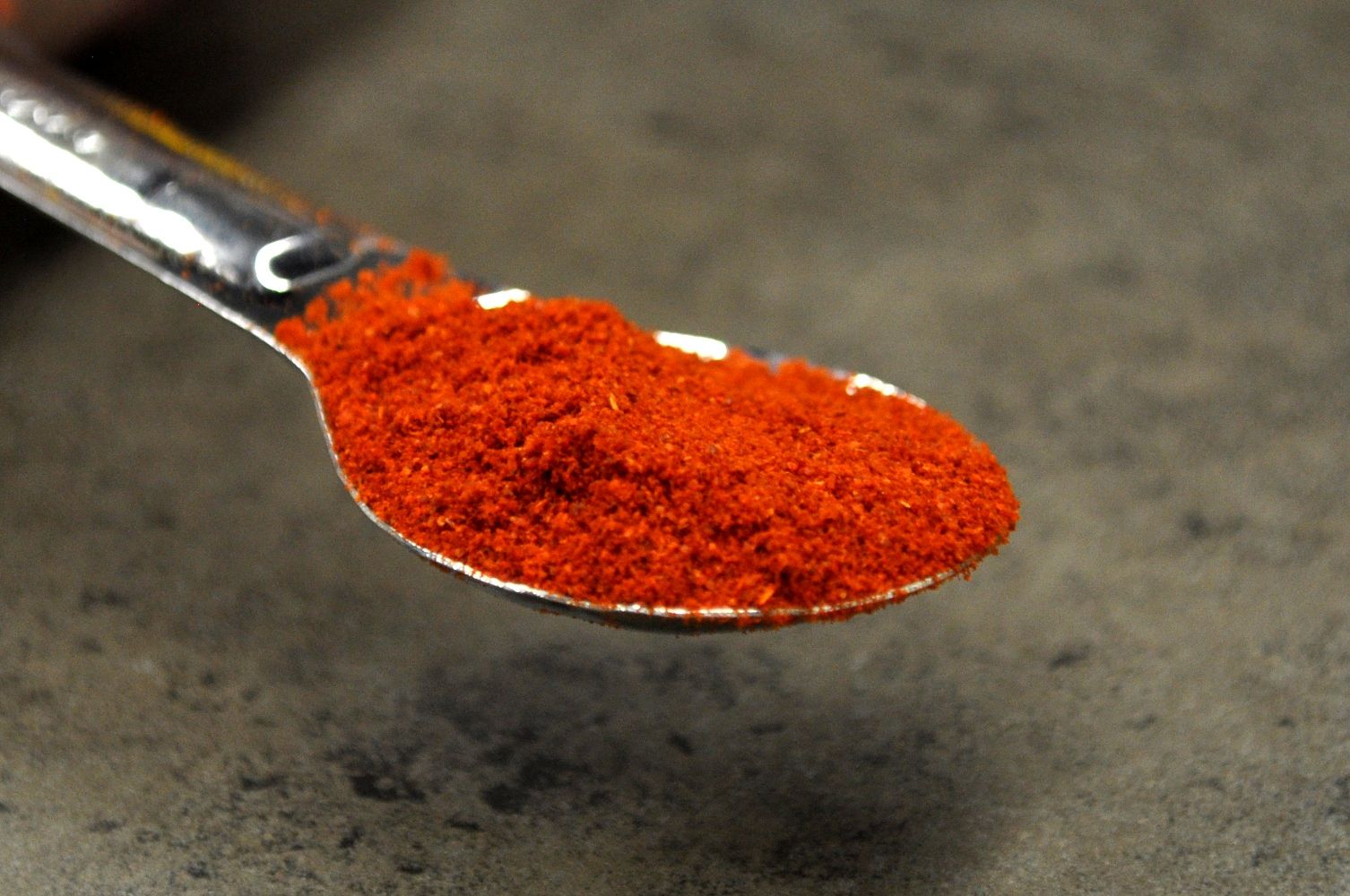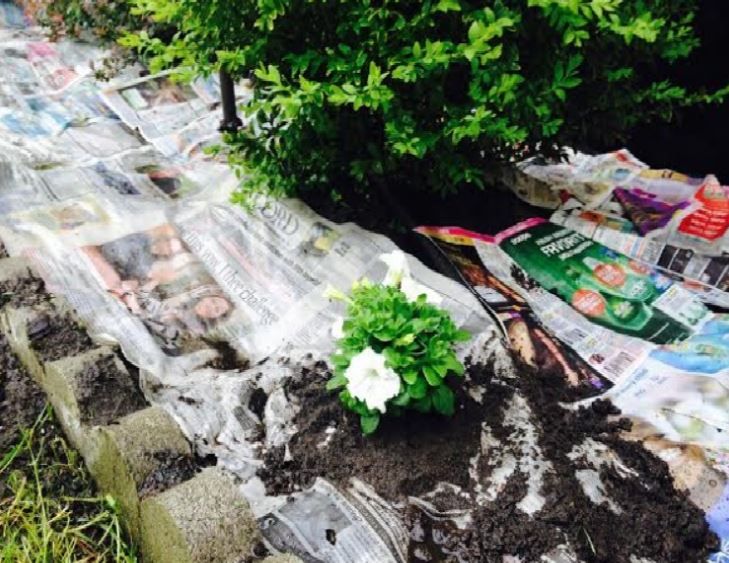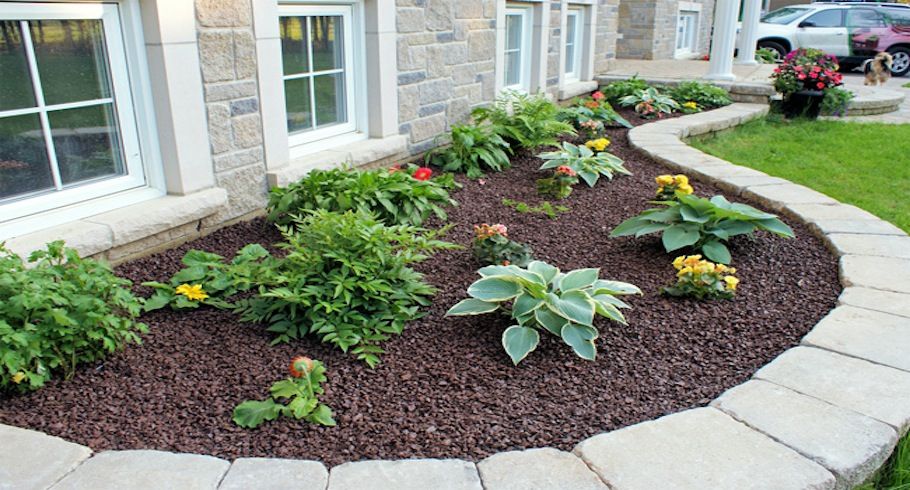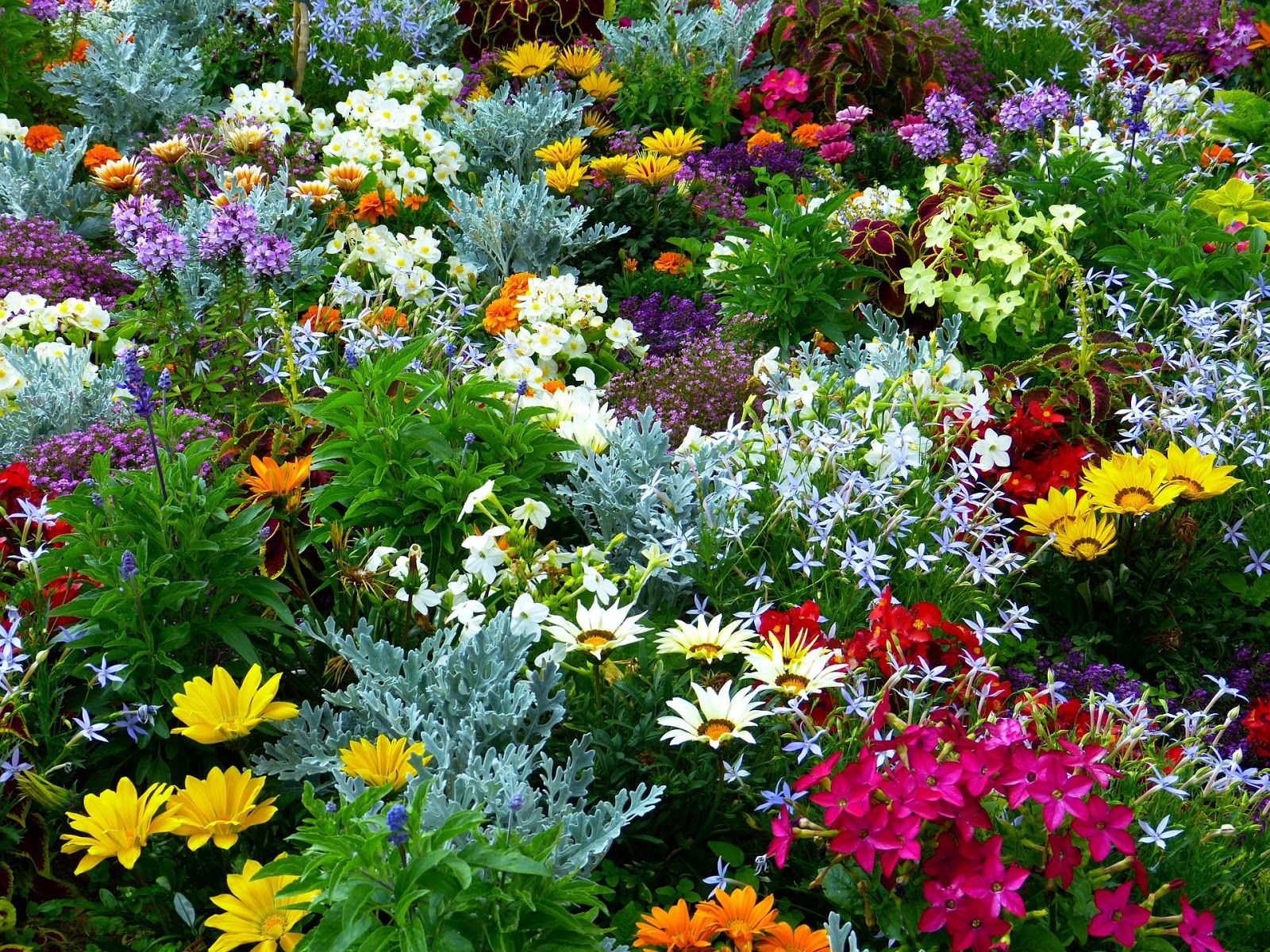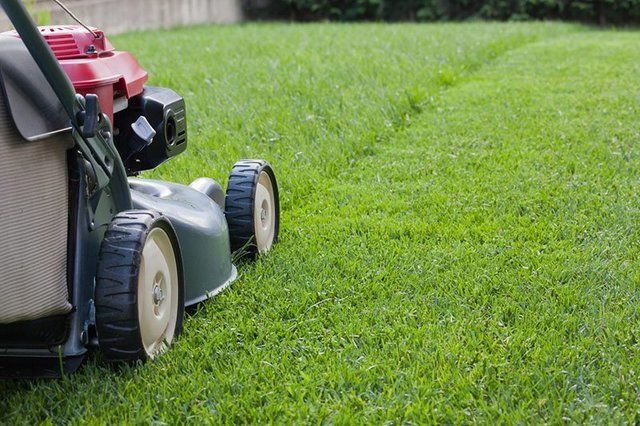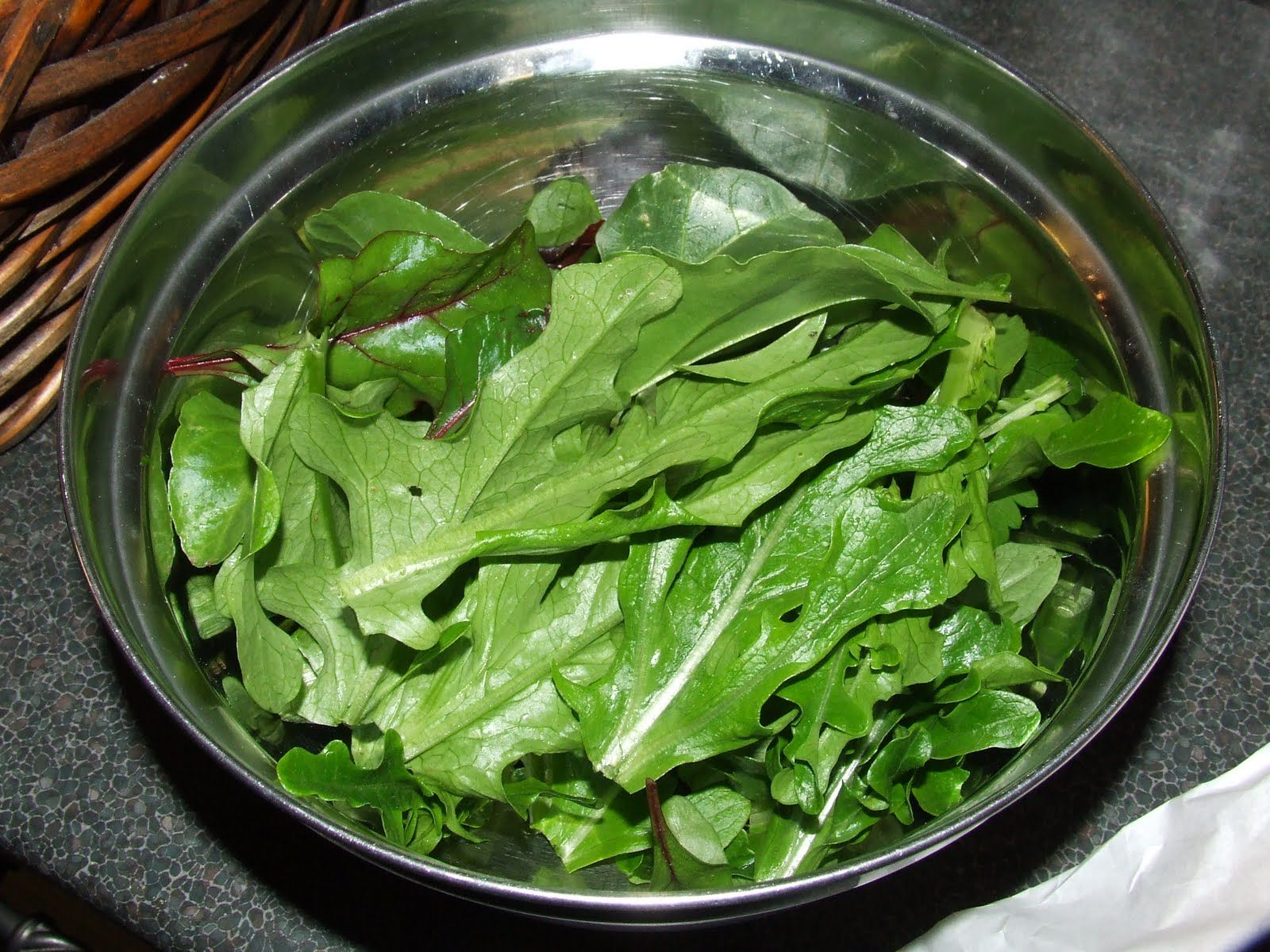There's a silent battle in my neighborhood where everyone wants to achieve the perfect manicured lawn and garden.
It's not an easy task, which is why millions are spent every year buying harmful products or hiring weed killers to maintain our lawns.
It's as if these unwanted plants know that they're the most irritating thing in the summer and grow faster every year to wreak havoc in our lives.
If the cracks in your sidewalks, driveway, garden, or lawn needs to be rid of these pesky plants, we've got the perfect solutions for you that'll save you a fortune.
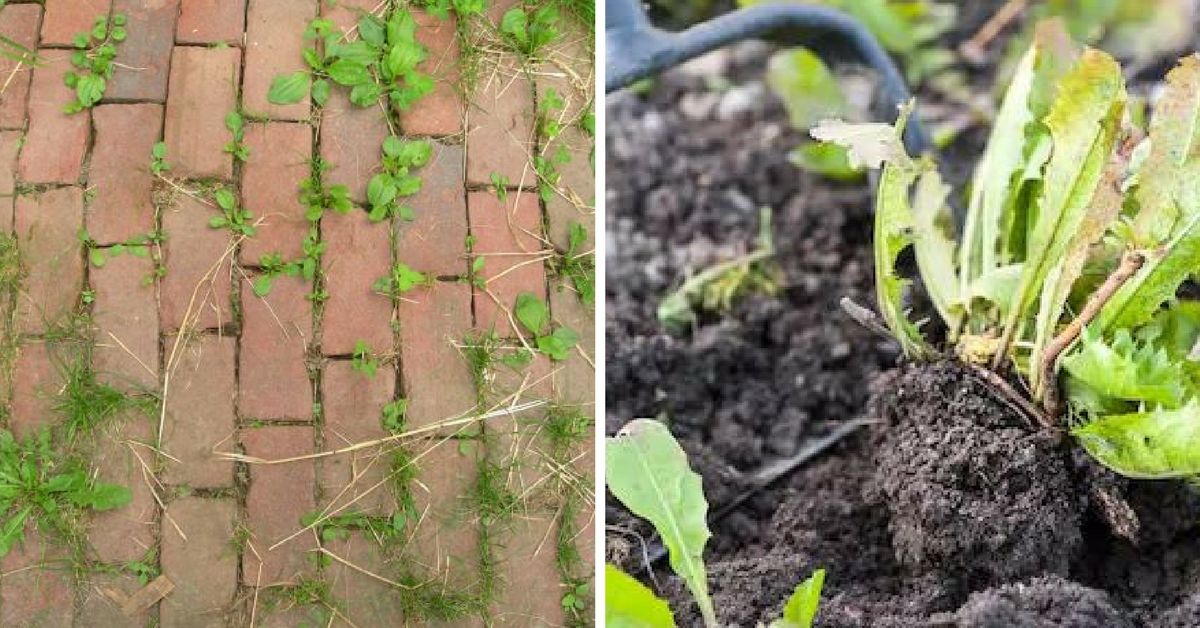
You already have all of these ingredients, just pick one of these solutions and try it on your garden this summer!
1. Hot Water
This trick is super simple and it won't cost you a single cent.
Hot water will kill any plant it touches.
Pour some boiling water into the cracks of your sidewalks and driveways to kill the weeds. For best results, add some salt to the water.
This works best on small areas, so don't go pouring boiling water all over your lawn.
2. Dish Soap
This is by far my favorite DIY method to kill the weeds in my garden, and the best part is that you already have all the ingredients in your home.
Combine one squirt of Dawn dish soap, 1/4 cup of salt, and fill the rest of your regular-sized spray bottle with vinegar.
If you don't have any spray bottles, you can buy them at the dollar store or just wait until your bottle of Lysol or Windex is empty.
3. Citric Acid and Lemon Juice
Citric acid is the perfect weed killer if you're looking for an organic herbicide.
Regular herbicides already have citric acid as one of its ingredients, so you know this is going to do the trick to rid your garden of pesky weeds.
Combine store-bought citric acid, four ounces of lemon juice, and one capfull of white or apple cider vinegar into a regular-sized spray bottle.
Shake and then spray on any undesirable plants.
4. Table Salt
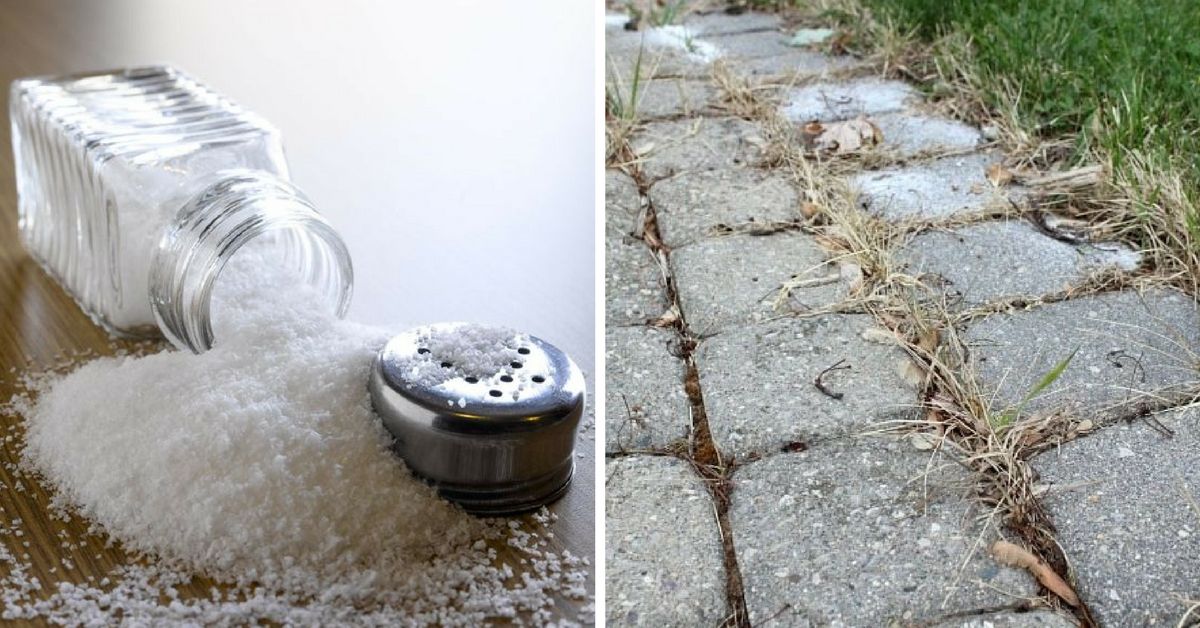
We all have a few boxes of table salt in our cupboards, and it's time we put them to good use.
When it's still spring, sprinkle salt on your garden paths to make a barrier along the edges.
This will prevent weeds from growing in areas your lawn mower can't reach.
Just like how salt dehydrates people, it also dehydrates plants, causing them to wither and perish.
Try this hack on a hot summer's day to speed up the dehydration process.
5. Vinegar
Weeds, like any other plant, need water to survive.
Water has a neutral pH level, meaning it's not too acidic or alkaline. Vinegar, on the other hand, is incredibly acidic.
So when you pour vinegar, whether it be white or apple cider, on weeds, they'll die in no time.
For faster results, spray vinegar on your weeds on a hot and sunny day. But make sure you don't spray any on your beautiful flowers!
Be warned, if you spray too much, you might risk lowering the pH level of your soil, which can be detrimental to your lawn or garden.
6. Cayenne Pepper
Many people sprinkle some cayenne pepper on their meal to add a kick to it.
Now imagine adding a spoonful. The thought of it is simply unbearable.
Combine liquid soap, water, and some cayenne pepper into a spray bottle and apply it anywhere that's infested with weeds.
This will work best if you spray the solution on areas that you want to prevent weed growth.
7. Newspapers or Landscape Fabric
If you don't have landscape fabric handy, smother your weeds with newspapers. Make sure it's just regular newspaper and not the glossy kind.
This process might be a little time consuming, but if you like spending time in your garden and enjoying a weed-free outdoor environment, this is the way to go.
As mentioned before, weeds need two things to survive: water and sun. So when you smother them with large newspapers, they can't grow and will eventually die off.
To keep the newspapers firm on the soil, put rocks over them or add a thick layer of mulch.
Also, newspapers will help keep cutworms at bay. Click here to read about other creative ways to remove pests from your garden.
8. Mulch
Speaking of mulch, if you want to avoid spraying harmful chemicals like pesticides and herbicides in your garden, apply a generous layer of mulch onto the surface of the soil.
Mulch will reduce weed germination by preventing the sun's rays from reaching the soil.
For best results, apply at least three to four inches of the product.
9. Grow Different Plants
If you're tired of spending too much time maintaining the weeds in your garden or lawn, just remove them and plant flowers that you love.
There are some areas in my garden where I'd like to only see soil, so I'll allocate some time to maintaining those small areas.
But there are some places in my garden and lawn that would like nice if it was covered with more marigolds or plants that are low maintenance.
10. Pull Them Out
If all else fails, behead the weeds by regularly mowing your lawn.
The trick here is to adjust your lawnmower to a higher setting so that you the length of your grass stays the same but the weeds get cut off.
The more often you mow your lawn, the slower the weeds will grow, and eventually they'll die off.
Or you can just pull them out.
I get my kids to do this once every two weeks. I tell them it's a form of exercise, and when they're not up for the task, I think of it as a relaxing time to be outdoors and tend to my garden.
Bonus: Eat Them
Weeds may not look good, but some of them are edible.
For example, young greens of dandelions, clovers, curly dock, and chicory can be added to your salad at no cost.
Before you eat any weeds, make sure you double check to see if they're not poisonous.
